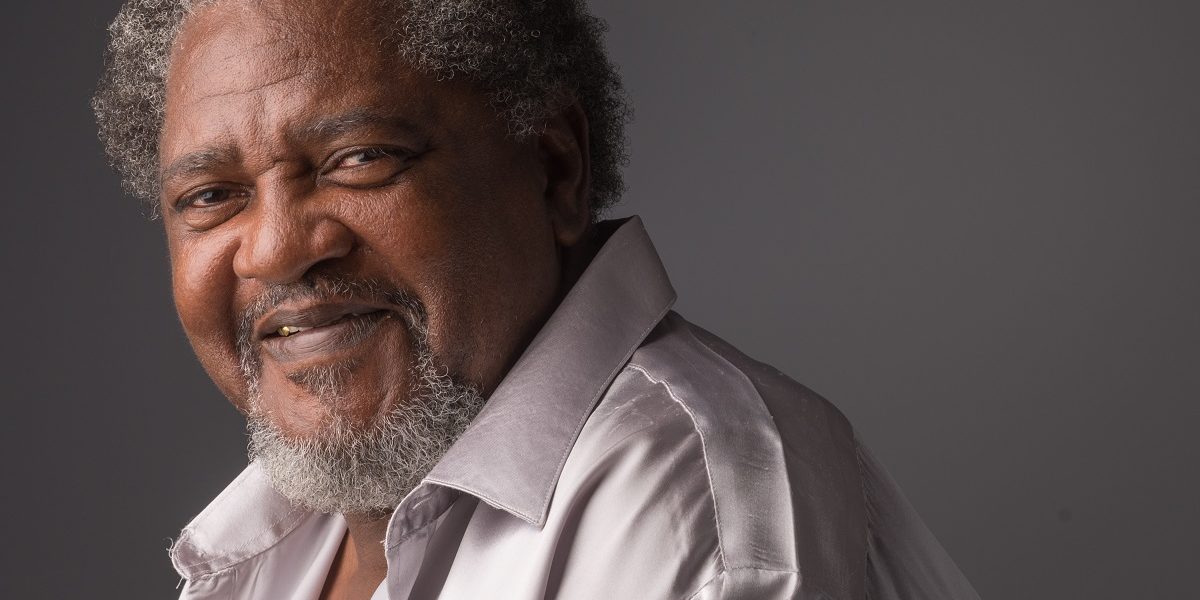
Remembering Louis “Gearshifter” Youngblood
In Memorium
Jackson-based blues guitarist and singer Louis Arzo Youngblood aka “Gearshifter” passed away on March 3, 2021 from heart-related issues. Youngblood was steeped in the blues tradition of southern Mississippi, but mixed in a variety of musical styles into his performances, including R&B and country.
Born on Valentine’s Day of 1953 in Picayune, Miss., Youngblood moved around southern Mississippi as a child, but spent much of his childhood at his great-grandparent’s home in rural Walthall County, Miss.
The time spent there had a big influence on him, both musically and how he viewed the world. His older relatives were contemporaries of Tommy Johnson, the legendary south Mississippi bluesman and Johnson’s songs were passed on through Youngblood’s family. His first musical teacher was his great-aunt Essie Mae, who taught him several of the traditional songs from the area that he played for the rest of his life.
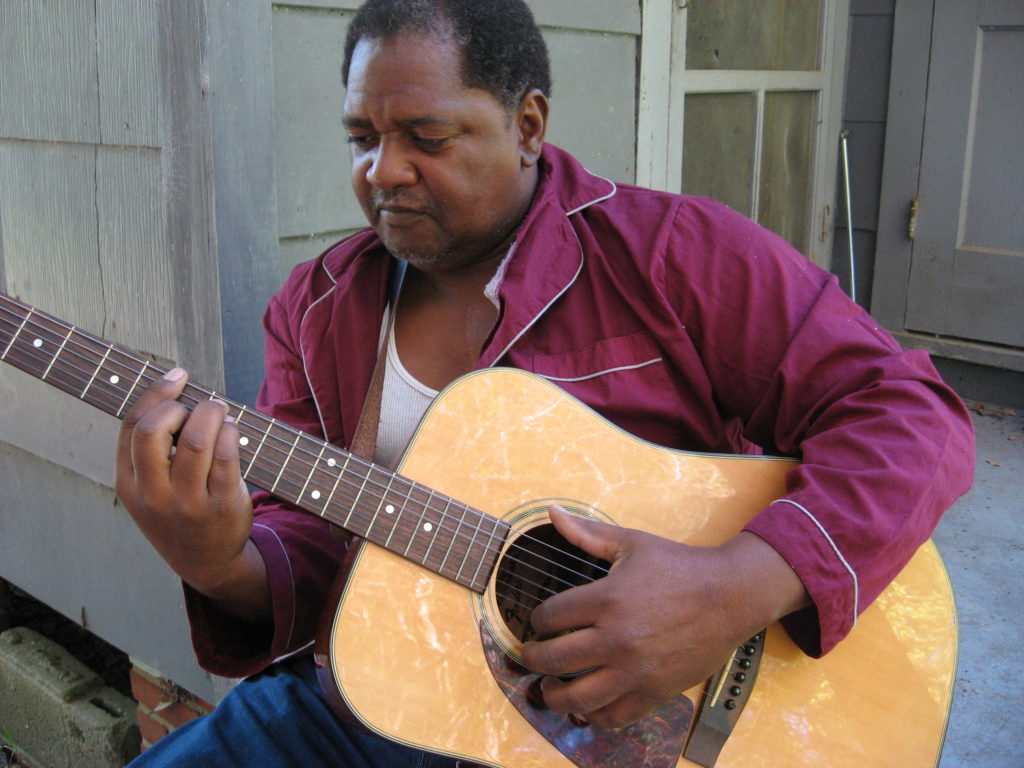
At 16 Youngblood joined the Job Corps, in which he learned to operate heavy machinery at camps in Arizona and New Mexico. He played informally with a band during his three-year tenure, and in the process became more interested in developing his skills on the guitar.
After leaving the Corps, he moved to Jackson, but often stayed in New Orleans with his grandfather Arzo Youngblood, who also was a blues guitarist and singer. Arzo’s home in the 9th Ward was a gathering place for blues musicians. The younger Youngblood didn’t study directly with the older men, but their music was influential on the development of his repertoire and performance style.
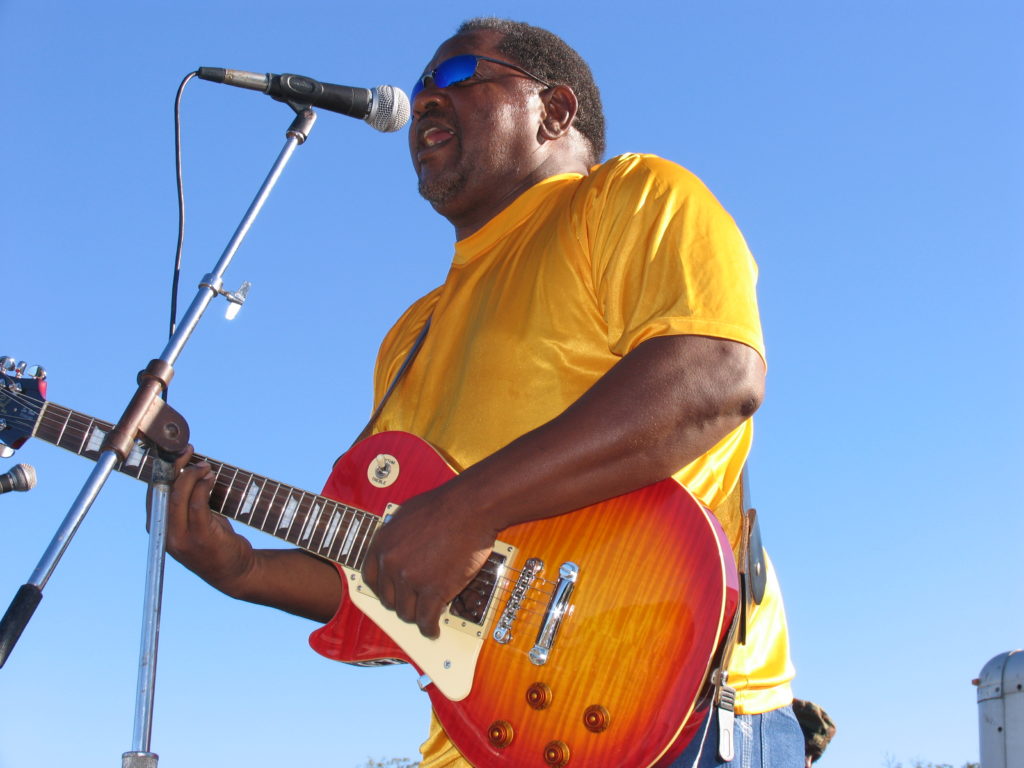
In the 1970s Louis began performing in Jackson together with artists including Robert Robinson and Tommy Lee at clubs including Dorsey’s and the Queen of Hearts. Mostly though, he worked as a heavy machinery operator at sites across the country. In the late ‘70s he lived in Miami, where he performed with Bahamians in a calypso band.
Throughout the ‘80s and ‘90s he continued to perform around Jackson. Youngblood met the music writer and radio host Scott Barretta in 2001, who spread the word about the musician’s unique style to the larger blues community.
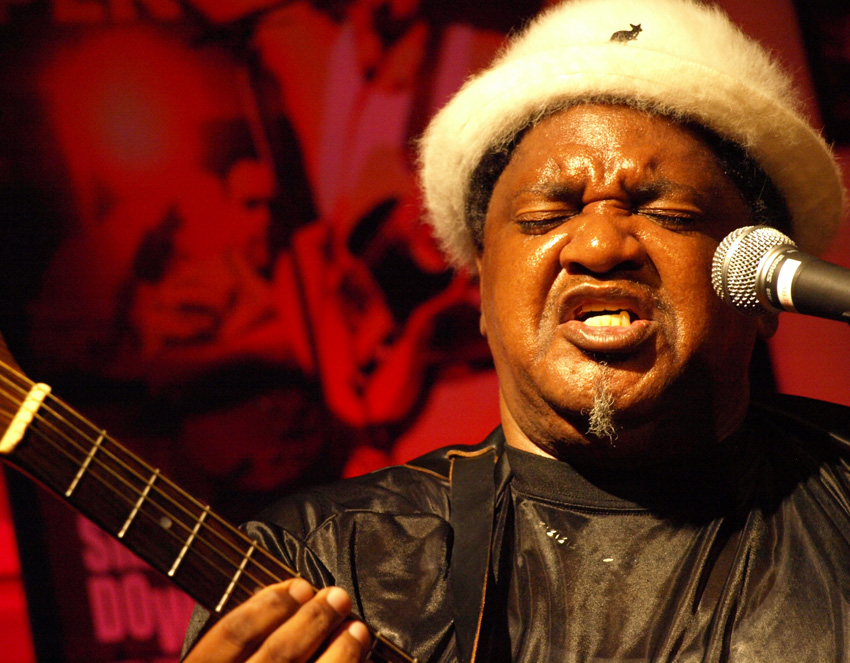
Barretta recorded an acoustic demo CD of Youngblood and helped get him slots on festivals in Mississippi and overseas.
Youngblood’s notable shows over the years include performances at Jazz Fest, the Chicago Blues Festival, the Crescent City Blues Festival and at festivals across Europe. He was a regular performer at the clubs and festivals in Clarksdale, Miss. and was a featured performer in the 2012 documentary We Juke Up in Here, which focused on the legendary Clarksdale club, Red’s Lounge.
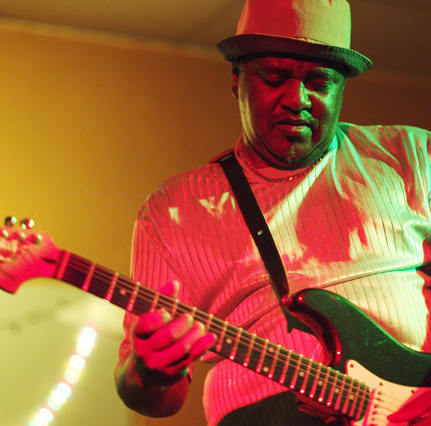
The musician also had a long association with the Mississippi Arts Commission. He received a Folk Arts Fellowship award in 2008, was a past member of the MAC Artist Roster and was a frequent performer at MAC events.
In 2018, Youngblood released his self-titled CD. The album featured a mixture of originals, traditional songs he had played since childhood, and his versions of some contemporary southern soul songs. The disc received strong reviews in the magazines Living Blues, Elmore Magazine and Blues & Rhythm.
As of this publication, funeral arrangements for Youngblood are still pending.
Playing Music with Louis Youngblood
by Larry Morrisey
I’m not sure when I first met Louis, but I became aware of him through Scott Barretta, who interviewed him for the Arts Commission’s Folk Arts program and had connected him to the broader national blues community. I interviewed him for a story in the Jackson Free Press in 2007 and we became friendly. I began going to see him play and when he found out I was a drummer, he gave me a short tryout and I began backing him up at many of his shows.
When playing with him, I had to pay attention at all times. He never used a set list and would not tell me or the other musicians what he was going to play next. I would have to listen to him play by himself for a short bit before making a guess at the song and joining in.
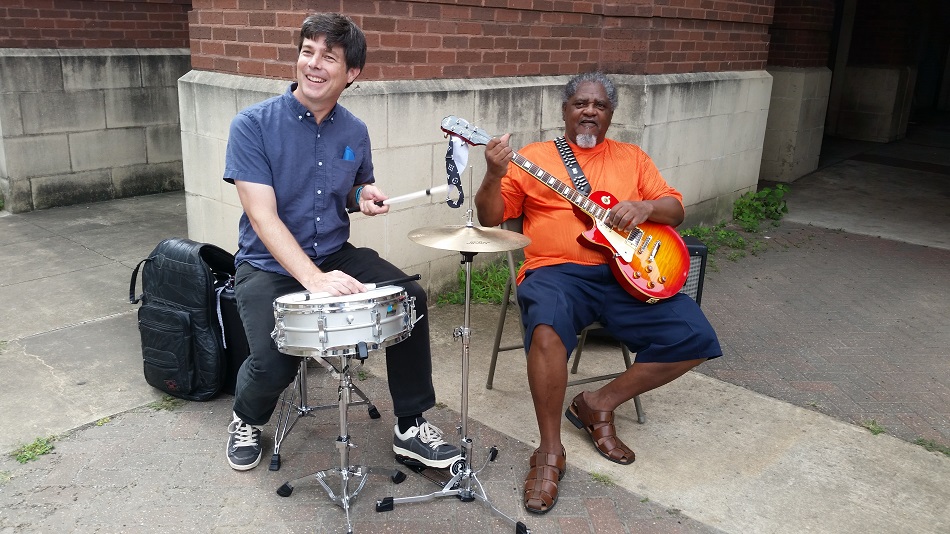
Although he had a large standard repertoire that made up the bulk of a show, he would regularly include a song that I had never heard him play. These could vary from an old country classic like Jim Reeves’ “He’ll Have to Go,” to his take on a current hit by southern soul artists like JWonn and Nellie “Tiger” Travis. He remained curious about new music and was always listening to the radio, picking out songs that he could add to his set.
There were many challenging gigs that we played together, including performing outside in freezing weather for the Mississippi Blues Marathon, sweating buckets onstage while playing an afternoon slot at the Grassroots Blues Festival in July, and playing long, late-night sets at Red’s Lounge in Clarksdale, with owner Red Paden calling out to Louis to stop so he could close up.
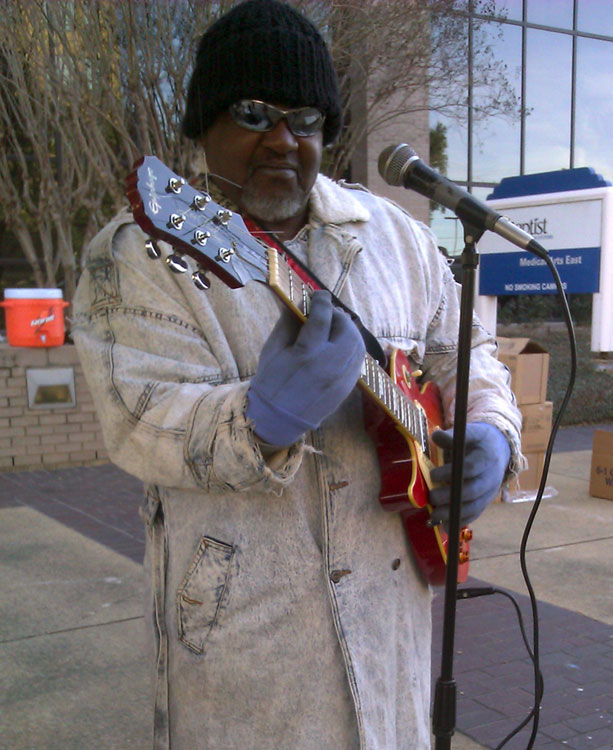
Over the years, Louis played in concert halls and at large festivals, but he was most comfortable in a small club where the audience was close. He liked the interaction with the crowd. While it would often take him 20-30 minutes to warm up at the beginning of a show, once he was in the zone he could play for hours without stopping. I would often have to plead with him for a bathroom break.
Despite his unique talents as a performer, Louis was incredibly humble about his abilities. Being left-handed, it had been a challenge for him to learn guitar technique from right-handers, so he developed his own way of playing. He recalled that when he was younger, he was often told that he was “playing it wrong.” I think that this experience gave him a unique perspective that he carried into how he wrote his own music and performed other musician’s songs. He would create his own unique versions of blues standards and current hits.
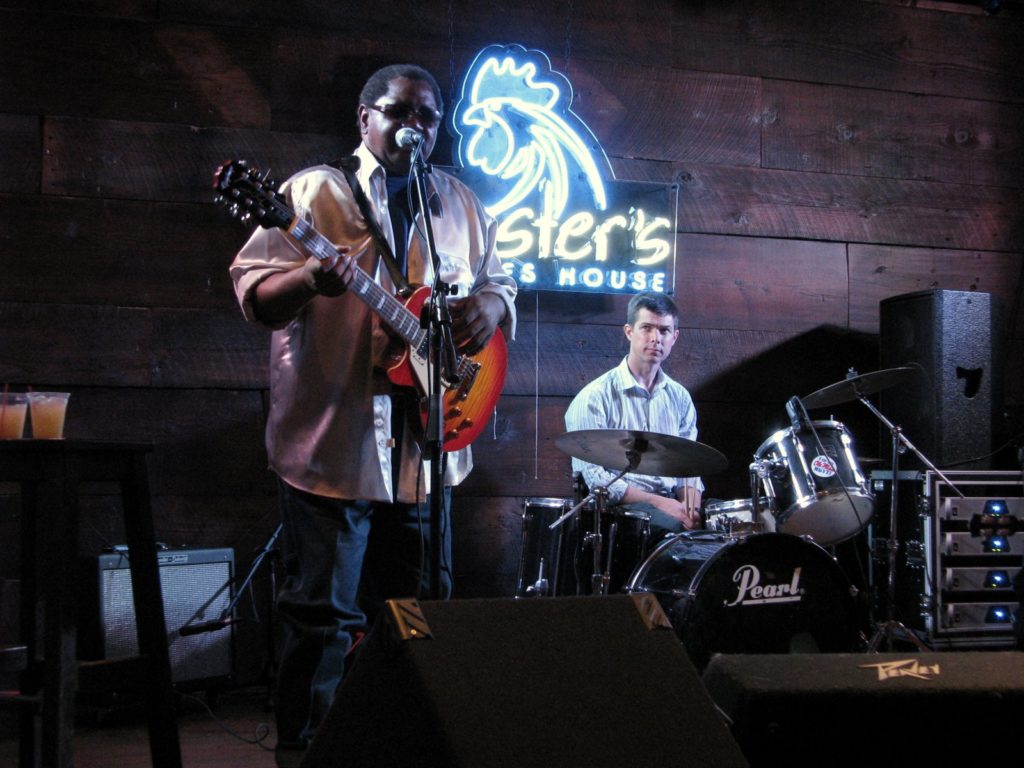
For several years I had wanted to help him record an album with a full band and thankfully we got the chance to do it in 2017. We had great help on the project from the folks at Dial Back Sound recording studio in Water Valley, who were sympathetic to his unique style. I believe that the CD shows his deep connection to the blues tradition as well as how he brought his sense of humor into many of his songs.
Louis was a unique musician, but he was also a great person to be around. I appreciated his ability to find joy in simple things and his interest in meeting and interacting with the different people we met through our travels together. I learned a lot from him and will greatly miss his presence in my life.
